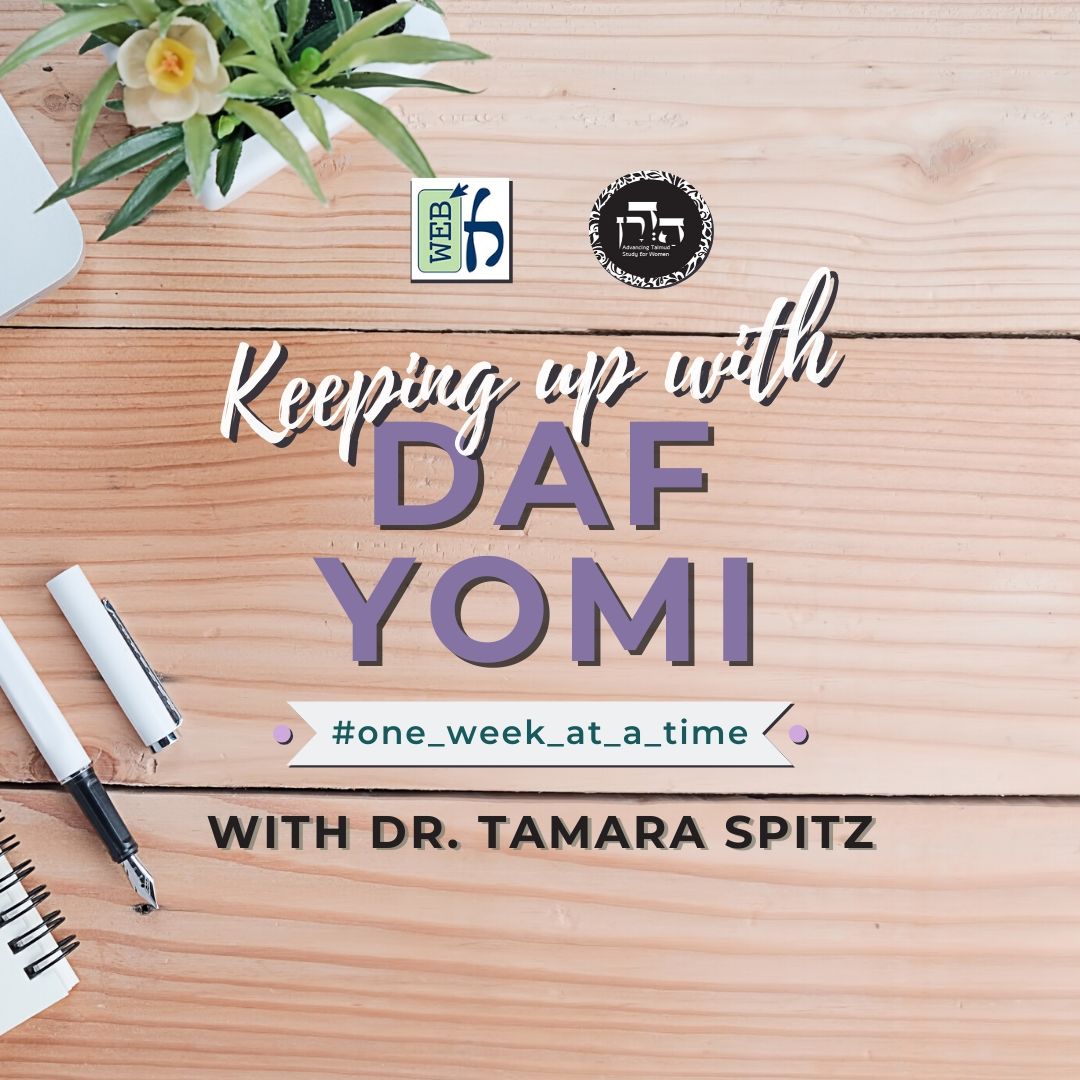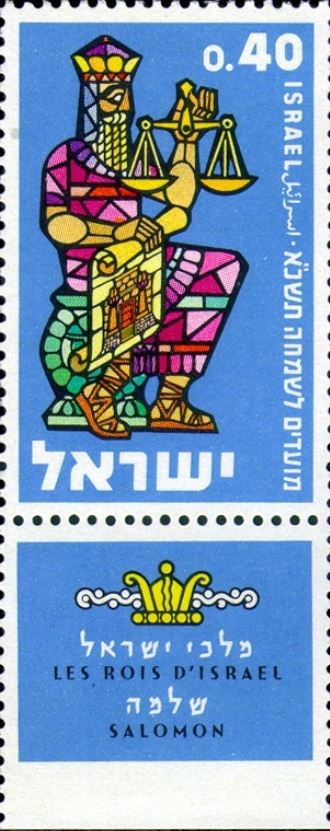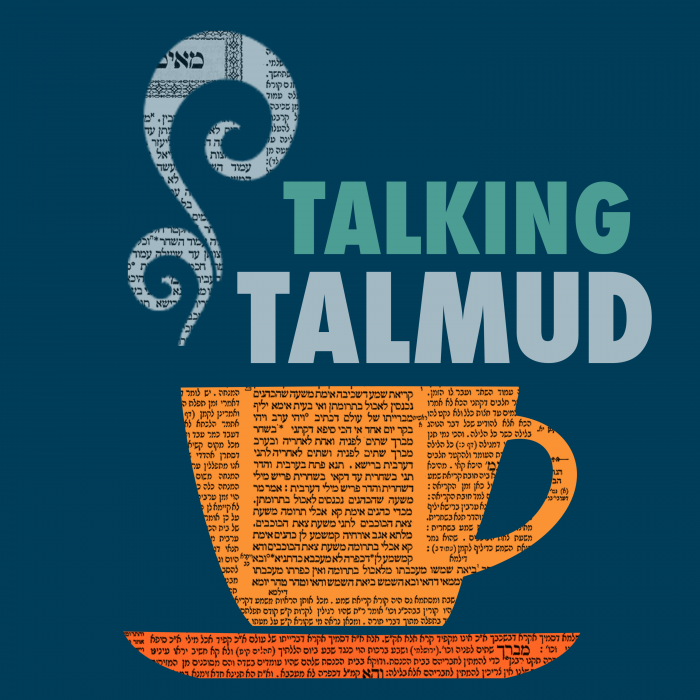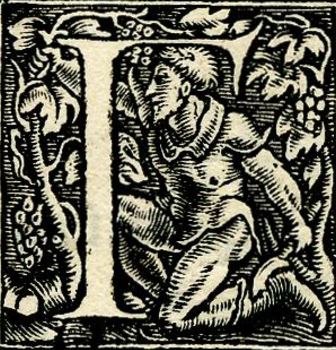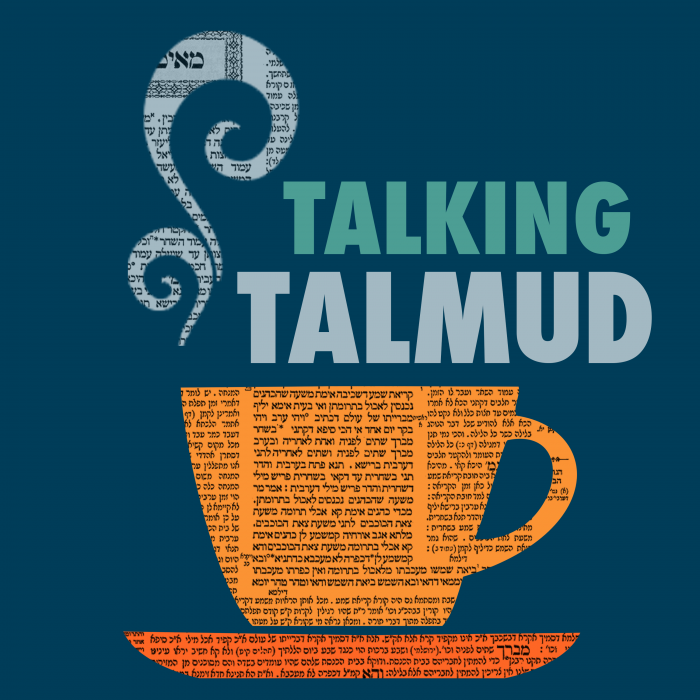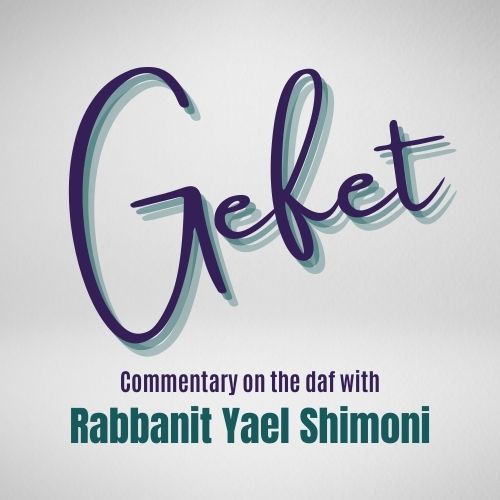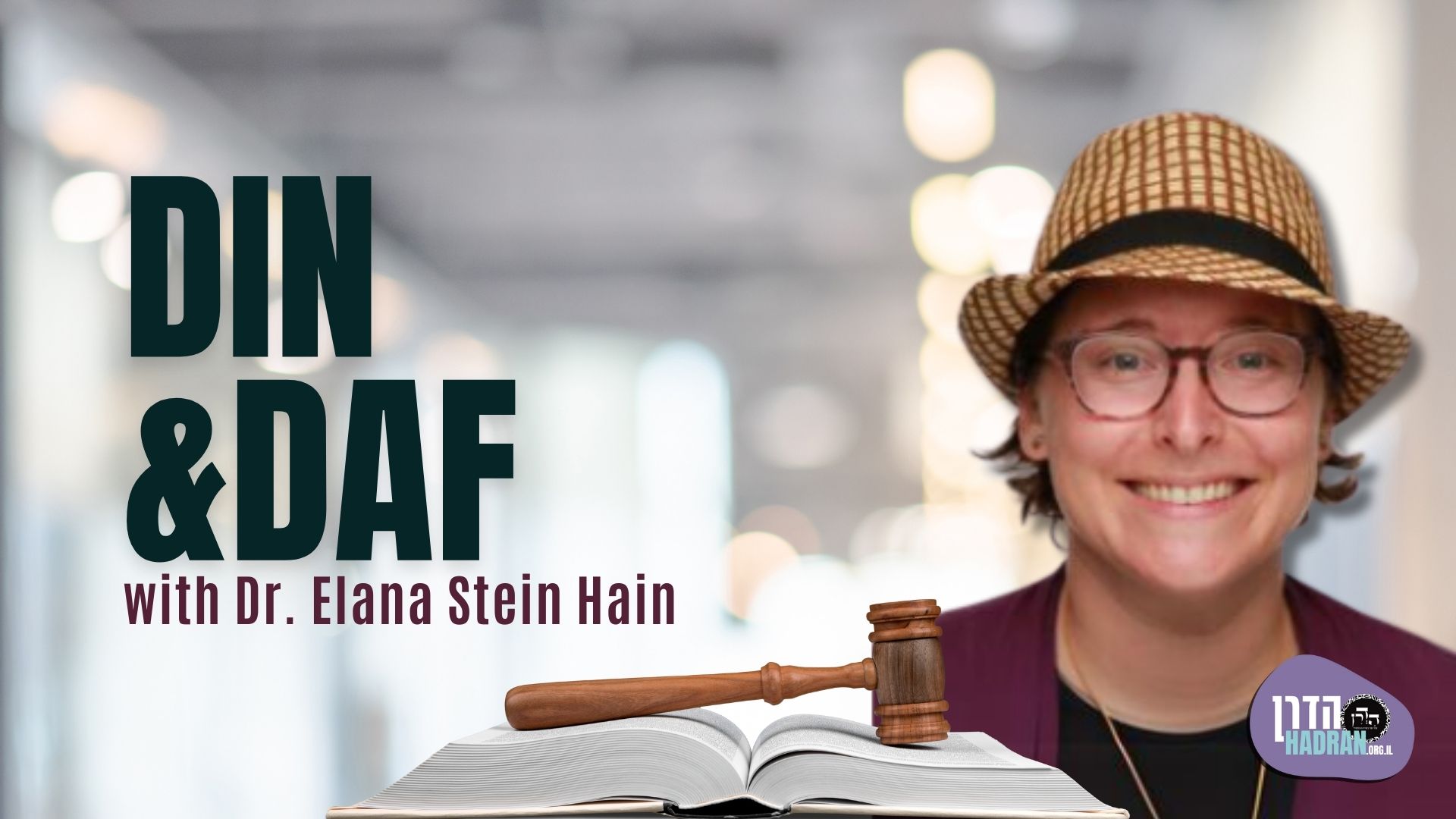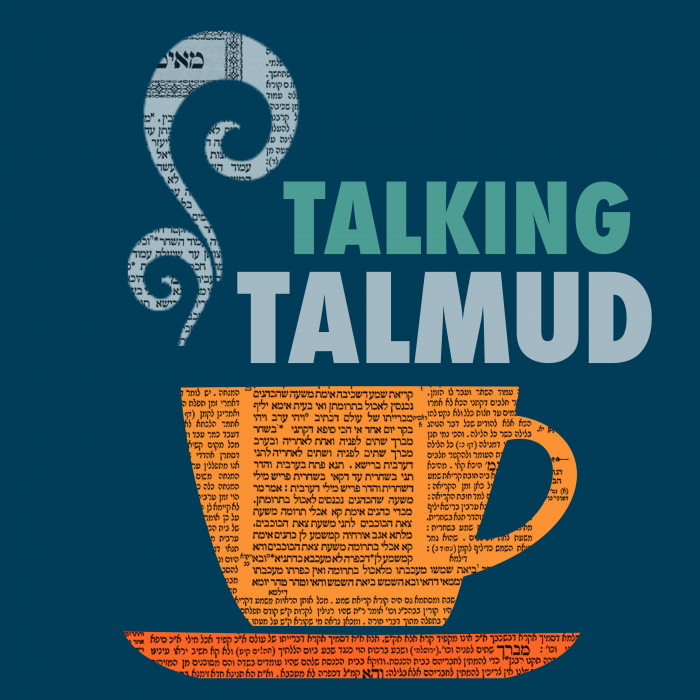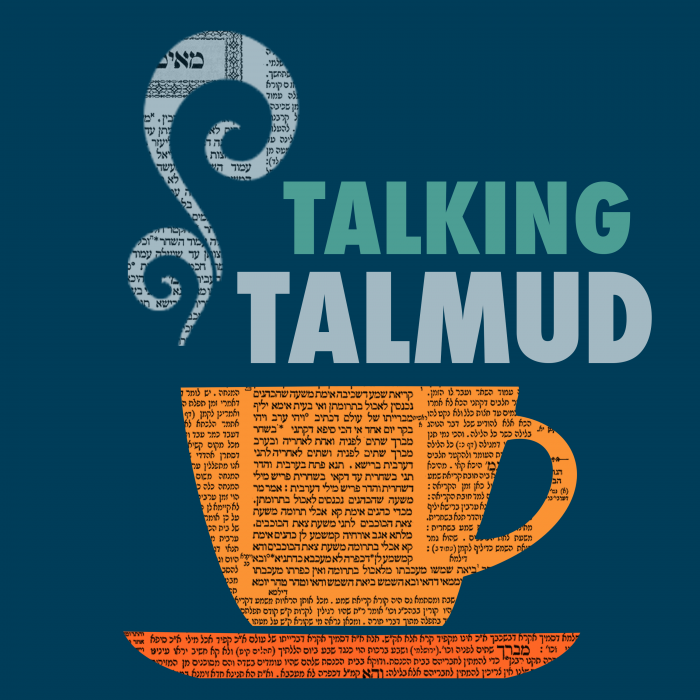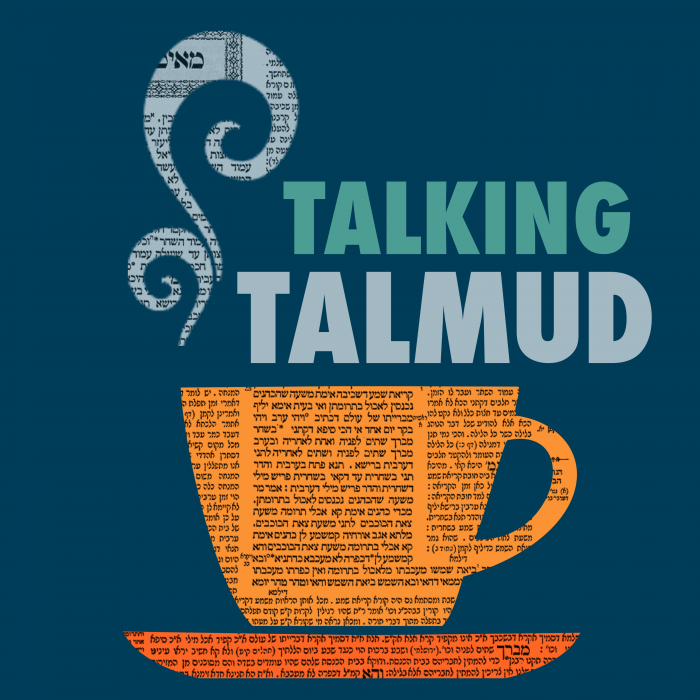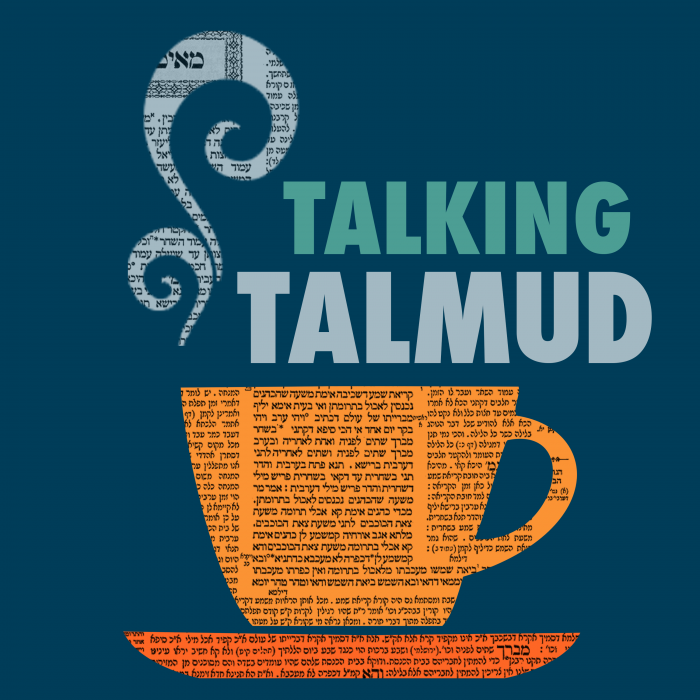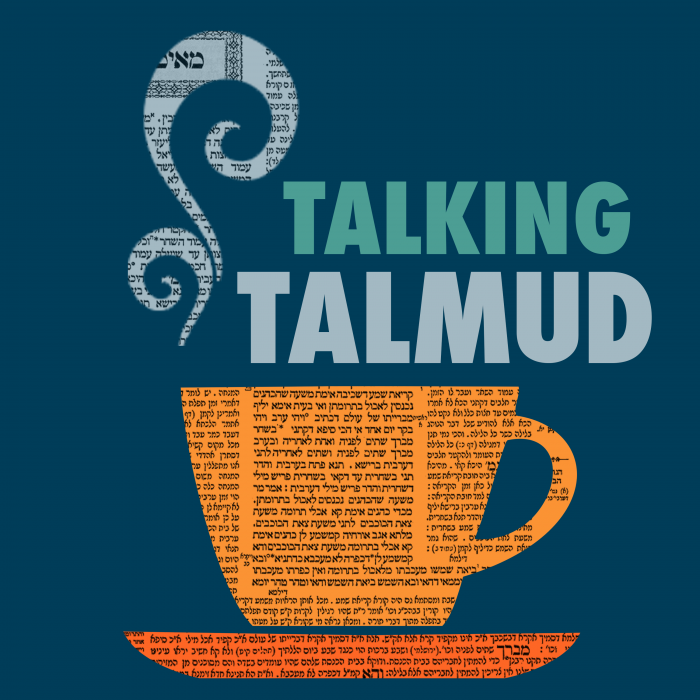The mishna brings various cases of cases where it is doubtful whether there is a firstborn and the tanaim debate what the halacha is in each case. Is it possible to an occurrence to have at the exact same moment (like an animal giving birth at the exact same moment to two animals)? If one holds no, then would he still agree that humans also cannot plan things to occur at the exact same moment/mesaure things to exact specifications? The laws regarding doubt are parallel to cases regarding doubt in other areas of halacha. If the owner keeps the animal that is possibly a firstborn, does he need to give the “gifts” from that animal to the priest? Rabbi Yossi and RAbbi Meir debate this issue but in what exact situation are the arguing?
This month’s learning is dedicated to the refuah shleima of our dear friend, Phyllis Hecht, גיטל פעשא בת מאשה רחל by all her many friends who love and admire her. Phyllis’ emuna, strength, and positivity are an inspiration.
Want to dedicate learning? Get started here:


Today’s daily daf tools:
This month’s learning is dedicated to the refuah shleima of our dear friend, Phyllis Hecht, גיטל פעשא בת מאשה רחל by all her many friends who love and admire her. Phyllis’ emuna, strength, and positivity are an inspiration.
Today’s daily daf tools:
Delve Deeper
Broaden your understanding of the topics on this daf with classes and podcasts from top women Talmud scholars.
New to Talmud?
Check out our resources designed to help you navigate a page of Talmud – and study at the pace, level and style that fits you.
The Hadran Women’s Tapestry
Meet the diverse women learning Gemara at Hadran and hear their stories.
Bekhorot 18
סָבַר לַהּ כְּרַבִּי יוֹסֵי הַגְּלִילִי, דְּאָמַר: אֶפְשָׁר לְצַמְצֵם בִּידֵי שָׁמַיִם, וְכׇל שֶׁכֵּן בִּידֵי אָדָם.
holds in accordance with the opinion of Rabbi Yosei HaGelili, who says: It is possible for two matters that are in the hands of Heaven to coincide precisely, and all the more so matters that are in human hands. Consequently, one cannot cite Rabbi Eliezer’s opinion in order to determine the opinion of the Rabbis.
נֵימָא כְּתַנָּאֵי: נִמְצָא מְכוָּּון בֵּין שְׁתֵּי עֲיָירוֹת — לֹא הָיוּ עוֹרְפִין, רַבִּי אֱלִיעֶזֶר אוֹמֵר: שְׁתֵּיהֶן מְבִיאוֹת שְׁתֵּי עֲגָלוֹת. מַאי לָאו בְּהָא קָמִיפַּלְגִי, דְּתַנָּא קַמָּא סָבַר: אִי אֶפְשָׁר לְצַמְצֵם, וְרַבִּי אֱלִיעֶזֶר סָבַר: אֶפְשָׁר לְצַמְצֵם?
The Gemara suggests: Let us say that this is subject to a dispute between tanna’im, as it is taught in a baraita: If the corpse of a slain person was found precisely between two towns, they would not break the heifer’s neck at all. Rabbi Eliezer says: The two towns bring two heifers between them. What, is it not correct to say that they disagree with regard to this matter, in that the first tanna holds that it is impossible for two matters to coincide precisely and Rabbi Eliezer holds that it is possible for two matters to coincide precisely?
וְתִיסְבְּרַאּ? אִי קָסָבַר תַּנָּא קַמָּא אִי אֶפְשָׁר לְצַמְצֵם, אַמַּאי לֹא הָיוּ עוֹרְפִים? יָבִיאוּ עֶגְלָה אַחַת בְּשׁוּתָּפוּת, וְיִתְּנוּ!
The Gemara rejects this suggestion: And how can you understand that to be the dispute? If the first tanna holds that it is impossible for two matters to coincide precisely, why does he claim that they would not break the heifer’s neck? Let them bring one heifer in partnership and stipulate that it is brought for the town that is actually nearest.
אֶלָּא, לְהָנֵי תַּנָּאֵי דְּכוּלֵּי עָלְמָא אֶפְשָׁר לְצַמְצֵם, וְהָכָא בִּ״קְרוֹבָה״ וְלֹא קְרוֹבוֹת קָמִיפַּלְגִי, דְּתַנָּא קַמָּא סָבַר: ״קְרוֹבָה״ וְלֹא קְרוֹבוֹת, וְרַבִּי אֱלִיעֶזֶר סָבַר: ״קְרוֹבָה״ וַאֲפִילּוּ קְרוֹבוֹת.
Rather, with regard to these tanna’im, everyone agrees that it is possible for two matters to coincide precisely. And here they disagree over whether the singular form kerova in the phrase “the town which is nearest [kerova]” indicates that only the nearest town brings a heifer, and not the many nearest [kerovot] towns; as the first tanna holds that it is derived from the term “kerova” that only the nearest town brings a heifer, and not multiple kerovot; and Rabbi Eliezer holds that although the verse states “kerova,” nevertheless this includes even multiple towns that are kerovot.
מַאי הָוֵי עֲלַהּ? אָמַר רַב חִיָּיא בַּר אָבִין אָמַר רַב עַמְרָם: תָּנָא נִמְצָא מְכוָּּון בֵּין שְׁתֵּי עֲיָירוֹת, רַבִּי אֱלִיעֶזֶר אוֹמֵר: שְׁתֵּיהֶן מְבִיאוֹת שְׁתֵּי עֲגָלוֹת, וַחֲכָמִים אוֹמְרִים: יָבִיאוּ עֶגְלָה אַחַת בְּשׁוּתָּפוּת וְיַתְנוּ.
The Gemara asks: What conclusion was reached about the Rabbis’ opinion with regard to whether matters in human hands can coincide precisely? Rav Ḥiyya bar Avin says that Rav Amram says: The Sages taught in a baraita: If the slain person was found precisely between two towns, Rabbi Eliezer says: The two towns bring two heifers between them; and the Rabbis say: They bring one heifer in partnership and stipulate that it is brought for the town that is nearest.
מַאי קָסָבְרִי רַבָּנַן? אִי קָסָבְרִי רַבָּנַן דְּאֶפְשָׁר לְצַמְצֵם, וּקְרוֹבָה — וַאֲפִילּוּ קְרוֹבוֹת, לַיְיתֵי תַּרְתֵּי! וְאִי ״קְרוֹבָה״ וְלֹא קְרוֹבוֹת, אֲפִילּוּ חֲדָא לָא לַיְיתֵי! אֶלָּא לָאו שְׁמַע מִינַּהּ קָסָבְרִי רַבָּנַן: אִי אֶפְשָׁר לְצַמְצֵם, וַאֲפִילּוּ בִּידֵי אָדָם. שְׁמַע מִינַּהּ.
What do the Rabbis hold in this regard? If the Rabbis hold that is possible for two matters that are in human hands to coincide precisely, and the singular “kerova” includes even multiple towns, kerovot, then they should bring two heifers. And if they hold that “kerova” indicates: But not kerovot, then they should not bring even one heifer. Rather, must one not conclude from it that the Rabbis hold: It is impossible for two matters to coincide precisely, and this is true even with regard to matters that are in human hands? Indeed, conclude from it that this is so.
רַבִּי טַרְפוֹן אוֹמֵר: בּוֹרֵר לוֹ אֶת הַיָּפֶה. מַאי טַעְמָא דְּרַבִּי טַרְפוֹן? קָא סָבַר: הָהוּא דְּבָרִיא נָפֵק בְּרֵישָׁא.
§ The mishna teaches that in the case of a ewe that gave birth for the first time to two male offspring whose heads emerged as one, Rabbi Tarfon says: The priest chooses the better of the two. The Gemara asks: What is the reasoning of Rabbi Tarfon? He holds that it is presumed that the healthier and better of the two emerged first, and therefore it belongs to the priest.
רַבִּי עֲקִיבָא אוֹמֵר: ״מְשַׁמְּנִין״ כּוּ׳. אָמַר רַבִּי חִיָּיא בַּר אַבָּא אָמַר רַבִּי יוֹחָנָן: הַכֹּהֵן נוֹטֵל כְּחוּשָׁה. אֲמַר לֵיהּ רַבִּי חִיָּיא בַּר אַבָּא לְרַבִּי יוֹחָנָן: וְהָא אֲנַן ״מְשַׁמְּנִין בֵּינֵיהֶן״ תְּנַן! אֲמַר לֵיהּ: עַד דַּאֲכַלְתְּ כַּפְנְיָיתָא בְּבָבֶל, תַּרְגֵּימְנָא מִסֵּיפָא.
The mishna further teaches that Rabbi Akiva says: They assess the value of the lambs between them. Rabbi Ḥiyya bar Abba says that Rabbi Yoḥanan says: According to Rabbi Akiva, the priest takes the leaner of the two. Rabbi Ḥiyya bar Abba said to Rabbi Yoḥanan: But didn’t we learn that they assess the value of the offspring between them, which indicates that the priest and owner divide their value? Rabbi Yoḥanan said to him: While you were eating dates in Babylonia, we in Eretz Yisrael explained it based on the latter clause in the mishna.
דְּקָתָנֵי סֵיפָא: מֵת אֶחָד מֵהֶן, רַבִּי טַרְפוֹן אוֹמֵר: יַחְלוֹקוּ, רַבִּי עֲקִיבָא אוֹמֵר: הַמּוֹצִיא מֵחֲבֵירוֹ עָלָיו הָרְאָיָה. וְאִי סָלְקָא דַעְתָּךְ ״מְשַׁמְּנִין בֵּינֵיהֶן״ דְּכִי הֲדָדֵי פְּלִיגִי, הָכִי נָמֵי (לִיפַּלְגִי) [לִיפְלוֹג] גַּבֵּי הֲדָדֵי! אֶלָּא מַאי ״מְשַׁמְּנִין״ — שׁוֹמֶן יְהֵא בֵּינֵיהֶן, דְּאָמַר לֵיהּ לְכֹהֵן: אַיְיתִי רְאָיָה דִּבְכוֹר הוּא וּשְׁקֹיל.
As the latter clause teaches: If one of the two born together died, Rabbi Tarfon says: The priest and the owner divide the remaining lamb, and Rabbi Akiva says: Since there is uncertainty to whom it belongs, it remains in the possession of the owner, as the burden of proof rests upon the claimant. And if it enters your mind that when Rabbi Akiva said that they assess the value between them he meant that they divide the value between them, then in the latter clause too, let them divide the value of the remaining offspring between them instead of leaving it with the owner. Rather, what does: They assess [meshammenin] the value between them, mean? It means that the additional fat [shumman] of the better twin will be the subject of dispute between them, as the owner says to the priest: Bring a proof that the better one is the firstborn, and take it.
וְהַשֵּׁנִי יִרְעֶה עַד שֶׁיִּסְתָּאֵב, וְחַיָּיב בְּמַתָּנוֹת, וְרַבִּי יוֹסֵי פּוֹטֵר. מַאי טַעְמָא דְּרַבִּי מֵאִיר? אָמַר רַבִּי יוֹחָנָן: הוֹאִיל וְכֹהֵן בָּא עָלָיו מִשְּׁנֵי צְדָדִין, דְּאָמַר לֵיהּ: אִי בְּכוֹר הוּא — כּוּלֵּיהּ דִּידִי הוּא, אִי לָא בְּכוֹר הוּא — הַב לִי מַתָּנוֹת מִינֵּיהּ.
§ The mishna teaches: And the second lamb that remains in the possession of the owner must graze until it becomes blemished, at which point he may slaughter and eat it, and he is obligated to have the gifts of the priesthood, i.e., the foreleg, the jaw, and the maw, taken from it; and Rabbi Yosei deems him exempt from giving those gifts. The Gemara asks: What is the reasoning of Rabbi Meir, whose opinion is the ruling cited first in the mishna? Rabbi Yoḥanan says: The owner is obligated since the priest comes upon him from two sides, i.e., by force of two complementary claims, as the priest says to him: If the second lamb is in fact the firstborn, it is mine in its entirety, and if it is not the firstborn, at least give me the priestly gifts from it.
וְרַבִּי יוֹסֵי מַאי טַעְמָא? אָמַר רָבָא: עָשׂוּ שֶׁאֵינוֹ זוֹכֶה כְּזוֹכֶה, וְאַף עַל גַּב דְּלָא מְטָא לִידֵיהּ כְּמַאן דִּמְטָא לִידֵיהּ, וְזַבְּנֵיהּ לְיִשְׂרָאֵל בְּמוּמֵיהּ.
And what is the reasoning of Rabbi Yosei, who deems the owner exempt from giving the priestly gifts from the second animal? Rava says: In this particular case, the Sages rendered one who did not acquire the animal like one who acquired the animal. And therefore, even though the second lamb of the Israelite did not actually enter the priest’s possession, it is considered as though it entered the priest’s possession and he then sold it to the Israelite in its blemished state, in exchange for the lamb he received. The owner can then claim that perhaps it is the firstborn, and he already fulfilled his obligation of giving it to the priest.
אָמַר רַבִּי אֶלְעָזָר: הַכֹּל מוֹדִים בִּסְפֵק בְּכוֹר, שֶׁאֵין חֲלִיפִין בְּיַד כֹּהֵן, שֶׁחַיָּיב בְּמַתָּנוֹת.
§ Rabbi Elazar says: Everyone concedes in the case of an animal with uncertain firstborn status, the replacement for which is not in the possession of the priest, that it is obligated to have gifts of the priesthood taken from it. In other words, in a case where the priest receives neither offspring, e.g., when a male and female are born together, all agree that the owner must give the gifts to the priest.
הַכֹּל מוֹדִים מַאן? רַבִּי יוֹסֵי? פְּשִׁיטָא! עַד כָּאן לָא קָא פָטַר רַבִּי יוֹסֵי הָתָם, אֶלָּא דַּחֲלִיפִין בְּיַד כֹּהֵן, דְּעָשׂוּ שֶׁאֵינוֹ זוֹכֶה כְּזוֹכֶה, אֲבָל אֵין חֲלִיפִין בְּיַד כֹּהֵן — לָא!
The Gemara asks: When Rabbi Elazar said that everyone concedes, to whom was he referring? Was he referring to Rabbi Yosei? That seems obvious. After all, Rabbi Yosei deemed the owner exempt from giving the gifts only there, where the replacement is in the possession of the priest, as the Sages rendered one who did not acquire the animal like one who acquired the animal. But if the replacement is not in the possession of the priest, evidently Rabbi Yosei does not rule that one is exempt, as his reasoning does not apply. Why, then, is the statement of Rabbi Elazar necessary?
מַהוּ דְּתֵימָא: טַעְמָא דְּרַבִּי יוֹסֵי, דְּקָסָבַר דְּאִי מְחַיְּיבַתְּ לֵיהּ בְּמַתָּנוֹת — אָתֵי לֵיהּ לִידֵי גִּיזָּה וַעֲבוֹדָה, אַף עַל גַּב דְּאֵין חֲלִיפִין בְּיַד כֹּהֵן, קָא מַשְׁמַע לַן.
The Gemara answers that Rabbi Elazar’s statement is in fact necessary, lest you say that the reason Rabbi Yosei deems him exempt from giving the gifts is that he holds that if you deem him obligated in the gifts, he will assume that the animal is completely non-sacred and come to use it for shearing and labor. Consequently, even though there is no replacement in the hands of the priest, the Sages ruled that one is exempt from giving the gifts, in order to ensure that he does not violate the prohibition against shearing the animal or using it for labor. Rabbi Elazar therefore teaches us that this is not the halakha, as Rabbi Yosei agrees that one is obligated to give the priestly gifts in such circumstances.
וּמִי מָצֵית אָמְרַתְּ הָכִי? וְהָתָנֵי סֵיפָא, שֶׁהָיָה רַבִּי יוֹסֵי אוֹמֵר:
The Gemara objects: And how can you say this? But doesn’t the latter clause of the mishna (18b) teach: As Rabbi Yosei says:
כֹּל שֶׁחֲלִיפָיו בְּיַד כֹּהֵן פָּטוּר מִן הַמַּתָּנוֹת, וְרַבִּי מֵאִיר מְחַיֵּיב. חֲלִיפִין בְּיַד כֹּהֵן — אִין, אֵין חֲלִיפִין בְּיַד כֹּהֵן — לָא!
With regard to any animal whose replacements are in the possession of the priest, its owner is exempt from the mitzva of giving the priestly gifts, and Rabbi Meir deems him obligated to give the gifts. Evidently, in a case where the replacement is in the possession of the priest, yes, Rabbi Yosei rules that the owner is exempt from giving the gifts, but if the replacement is not in the possession of the priest, he is not exempt.
מַהוּ דְּתֵימָא: רַבִּי יוֹסֵי לִדְבָרָיו דְּרַבִּי מֵאִיר קָאָמַר לֵיהּ — לְדִידִי, אֲפִילּוּ אֵין חֲלִיפִין בְּיַד כֹּהֵן, דְּאִי מְחַיְּיבַתְּ לֵיהּ בְּמַתָּנוֹת אָתֵי לֵיהּ לִידֵי גִּיזָּה וַעֲבוֹדָה; לְדִידָךְ, אוֹדִי לִי מִיהָא הֵיכָא דַּחֲלִיפִין בְּיַד כֹּהֵן, דְּעָשׂוּ שֶׁאֵינוֹ זוֹכֶה כְּזוֹכֶה; וְאָמַר לֵיהּ רַבִּי מֵאִיר: לָא.
The Gemara explains that even so, Rabbi Elazar’s statement is necessary, lest you say that Rabbi Yosei was not expressing his own opinion but stated his opinion in accordance with the statement of Rabbi Meir, i.e., he said to him: In my opinion, the Israelite is exempt from giving the priestly gifts even if the replacement is not in the possession of the priest, as, if you deem him obligated in the gifts, he might think that the animal is completely non-sacred and come to use it for shearing and labor. But even according to your reasoning, at least concede to me in a case where the replacement is in the possession of the priest, that the Sages rendered one who did not acquire the animal like one who acquired the animal. And Rabbi Meir said to Rabbi Yosei: No, I do not concede in that case. Accordingly, Rabbi Elazar is teaching that Rabbi Yosei does, in fact, maintain that the reason for the Israelite’s exemption is that the replacement is in the possession of the priest.
וְאָמַר רַב פָּפָּא: הַכֹּל מוֹדִים בִּסְפֵק מַעֲשֵׂר שֶׁפָּטוּר מִן הַמַּתָּנוֹת. ״הַכֹּל מוֹדִים״ — מַאן? רַבִּי מֵאִיר? פְּשִׁיטָא! עַד כָּאן לָא קָמְחַיֵּיב רַבִּי מֵאִיר הָתָם אֶלָּא בִּסְפֵק בְּכוֹר, הוֹאִיל וּבָא עָלָיו כֹּהֵן מִשְּׁנֵי צְדָדִין, אֲבָל סָפֵק מַעֲשֵׂר — לָא.
And Rav Pappa says with regard to the dispute between Rabbi Meir and Rabbi Yosei: Everyone concedes in the case of an animal whose status as tithe is uncertain that its owner is exempt from the mitzva of the priestly gifts. The Gemara asks: When Rav Pappa says that everyone concedes, to whom is he referring? Is he referring to Rabbi Meir? That would seem obvious. After all, Rabbi Meir deemed one obligated to give the gifts only there, in the case of an animal whose status as firstborn is uncertain, since the priest comes upon the Israelite from two sides. But with regard to an animal whose status as tithe is uncertain Rabbi Meir does not rule that one is obligated, as that reasoning does not apply. Why, then, is Rav Pappa’s statement necessary?
מַהוּ דְּתֵימָא: טַעְמָא דְּרַבִּי מֵאִיר דְּלֹא תִּשְׁתַּכַּח תּוֹרַת מַתָּנוֹת, אֲפִילּוּ סְפֵק מַעֲשֵׂר נָמֵי? קָא מַשְׁמַע לַן.
The Gemara explains that the statement of Rav Pappa is necessary lest you say that the reason that Rabbi Meir deems him obligated in the gifts is so that the halakhic category of the gifts should not be forgotten; if so, the same would apply even in the case of an animal whose status as tithe is uncertain. Rav Pappa therefore teaches us otherwise.
וּמִי מָצֵית אָמְרַתְּ הָכִי? וְהָקָתָנֵי סֵיפָא, שֶׁהָיָה רַבִּי יוֹסֵי אוֹמֵר: כֹּל שֶׁחֲלִיפָיו בְּיַד כֹּהֵן — פָּטוּר מִן הַמַּתָּנוֹת, וְרַבִּי מֵאִיר מְחַיֵּיב!
The Gemara asks: And how can you say this? But doesn’t the latter clause teach: As Rabbi Yosei says: With regard to any animal whose replacements are in the possession of a priest, its owner is exempt from the mitzva of giving the priestly gifts, and Rabbi Meir deems him obligated to give the gifts. Evidently, the basis for the dispute between Rabbi Meir and Rabbi Yosei is not whether an obligation is imposed so that the halakhic category of the priestly gifts should not be forgotten, but whether the Sages rendered one who did not acquire the animal like one who acquired the animal, which means that an animal whose replacement is in the priest’s possession is not subject to the mitzva of the gifts.
מַהוּ דְּתֵימָא: רַבִּי מֵאִיר אֲפִילּוּ סְפֵק מַעֲשֵׂר מְחַיַּיב, וְהָא דְּמִיפַּלְגִי בַּחֲלִיפִין — לְהוֹדִיעֲךָ כֹּחוֹ דְּרַבִּי יוֹסֵי, דְּפָטַר אֲפִילּוּ הֵיכָא דְּכֹהֵן בָּא עָלָיו מִשְּׁנֵי צְדָדִין, קָא מַשְׁמַע לַן.
The Gemara explains that Rav Pappa’s statement is necessary lest you say: Rabbi Meir deems one obligated to give the gifts even in the case of an animal whose status as tithe is uncertain, in order that the halakhic category of the gifts should not be forgotten. And as for the fact that the mishna presents their disagreement with regard to replacement animals, this serves to convey to you the far-reaching nature of the opinion of Rabbi Yosei, who deems one exempt from the mitzva of the gifts even in a case where the priest comes upon the Israelite from two sides. Rav Pappa therefore teaches us that in fact Rabbi Meir exempts one from the mitzva of the priestly gifts in the case of an animal whose tithed status is uncertain.
מֵת אֶחָד מֵהֶן, רַבִּי טַרְפוֹן אוֹמֵר: יַחְלוֹקוּ. אַמַּאי יַחְלוֹקוּ? נִיחְזֵי: אִי שָׁמֵן מִית — דְּכֹהֵן הוּא, וְהַאי דְּאִיכָּא דְּבַעַל הַבַּיִת; וְאִי כָּחוּשׁ מִית — דְּבַעַל הַבַּיִת מִית, וְהַאי דְּאִיכָּא דְּכֹהֵן הוּא! אָמַר רַבִּי אַמֵּי: חָזַר בּוֹ רַבִּי טַרְפוֹן.
§ The mishna teaches: If one of the two born together died, Rabbi Tarfon says: The priest and the owner divide the remaining lamb. The Gemara asks: Why should they divide it? Let us see: According to Rabbi Tarfon, who holds that it is presumed that the healthier and better of the two emerged first, as explained earlier, if the fatter and better of the two died it should be assumed that it was the one that belonged to the priest, and this one that is left belongs to the owner. And if the leaner of the two died, it should be assumed that the animal of the owner died, and this one that is left belongs to the priest. Rabbi Ami said: In fact, Rabbi Tarfon retracted his previous ruling that the priest takes the better of the two, and instead ruled that the priest and owner divide the value of the offspring in all cases. The mishna was not emended to reflect the updated ruling.
רַבִּי עֲקִיבָא אוֹמֵר: הַמּוֹצִיא מֵחֲבֵירוֹ עָלָיו הָרְאָיָה. אָמַר רַבִּי חִיָּיא: מָשָׁל דְּרַבִּי טַרְפוֹן לְמָה הַדָּבָר דּוֹמֶה? לִשְׁנַיִם שֶׁהִפְקִידוּ אֵצֶל רוֹעֶה, שֶׁמַּנִּיחַ רוֹעֶה בֵּינֵיהֶם וּמִסְתַּלֵּק.
§ The mishna teaches: In a case where two animals were born together and one of them died, Rabbi Akiva says: The living offspring remains in the possession of the owner, as the burden of proof rests upon the claimant. Rabbi Ḥiyya stated a parable that clarifies the opinion of Rabbi Tarfon, who says that the priest and the owner divide the remaining lamb: To what is this matter comparable? It is comparable to two people who each deposited a sheep with a shepherd and one of the two sheep died, and it is unclear to whom it belonged. In that case, the shepherd places the remaining sheep between them and withdraws, leaving them to divide the value of the sheep between them. Likewise, the mishna is discussing a case where the live offspring is not in the possession of either the owner or the priest, and therefore it is divided between them.
וּמָשָׁל דְּרַבִּי עֲקִיבָא: לְמָה הַדָּבָר דּוֹמֶה? לְאֶחָד שֶׁהִפְקִיד אֵצֶל בַּעַל הַבַּיִת, שֶׁהַמּוֹצִיא מֵחֲבֵירוֹ עָלָיו הָרְאָיָה.
And Rabbi Ḥiyya also stated a parable that clarifies the opinion of Rabbi Akiva: To what is this matter comparable? It is comparable to one who deposited a sheep with a homeowner, who had sheep of his own, and it is unknown whose sheep died. In that case, the burden of proof rests upon the claimant. Since the remaining sheep is currently in the possession of the homeowner, the one who deposited the animal must prove that the living sheep belongs to him. Likewise, the mishna is discussing a case where the live offspring is in the possession of the owner, and therefore the burden of proof rests upon the priest.
אֶלָּא בְּמַאי פְּלִיגִי? רַבִּי עֲקִיבָא פְּלִיג בִּשְׁנַיִם שֶׁהִפְקִידוּ אֵצֶל רוֹעֶה, שֶׁמַּנִּיחַ רוֹעֶה וּמִסְתַּלֵּק? וְרַבִּי טַרְפוֹן פְּלִיג בְּאֶחָד שֶׁהִפְקִיד אֵצֶל בַּעַל הַבַּיִת? אָמַר רָבָא, וְאִיתֵּימָא רַב פָּפָּא: הַכֹּל מוֹדִים בִּשְׁנַיִם שֶׁהִפְקִידוּ אֵצֶל רוֹעֶה — שֶׁמַּנִּיחַ רוֹעֶה בֵּינֵיהֶם וּמִסְתַּלֵּק, וּבְאֶחָד שֶׁהִפְקִיד אֵצֶל בַּעַל הַבַּיִת — שֶׁהַמּוֹצִיא מֵחֲבֵירוֹ עָלָיו הָרְאָיָה.
The Gemara asks: But if Rabbi Tarfon and Rabbi Akiva are addressing different circumstances, then with regard to what matter do they disagree? Does Rabbi Akiva disagree with the conclusion in the parable mentioned with regard to Rabbi Tarfon’s opinion, of two people who each deposited a sheep with a shepherd, that the shepherd places the remaining sheep between them and withdraws? And similarly, does Rabbi Tarfon disagree with the conclusion in the case of one who deposited a sheep with a homeowner that the homeowner keeps the remaining sheep? Certainly not. Rather, Rava says, and some say it was Rav Pappa who says: Everyone concedes in the case of two who deposited sheep with a shepherd that the shepherd places it between them and withdraws, and everyone concedes in the case of one who deposited a sheep with a homeowner that the burden of proof rests upon the claimant.
לֹא נֶחְלְקוּ אֶלָּא בַּחֲצַר בַּעַל הַבַּיִת, וְרוֹעֶה כֹּהֵן. רַבִּי טַרְפוֹן סָבַר: אַקְנוֹיֵי קָא מַקְנֵי לֵיהּ בַּחֲצֵירוֹ, וְנִיחָא לֵיהּ דְּלִיתְעֲבִיד מִצְוָה בְּמָמוֹנֵיהּ, וְהָוֵה לֵיהּ כִּשְׁנַיִם שֶׁהִפְקִידוּ אֵצֶל רוֹעֶה, שֶׁמַּנִּיחַ רוֹעֶה בֵּינֵיהֶן וּמִסְתַּלֵּק.
Rabbi Akiva and Rabbi Tarfon disagree only where the offspring were born in the courtyard of the homeowner, and the shepherd is a priest to whom the homeowner usually gives his firstborn animals. Rabbi Tarfon holds: The homeowner transfers to the priest a portion of his courtyard so that the priest should acquire the firstborn offspring located there, because it is suitable for him that the mitzva of giving the firstborn to a priest should be performed. Therefore, the priest is considered to hold partial jurisdiction of the courtyard. And consequently, this is comparable to two people who each deposited a sheep with a shepherd and one of the two sheep died, where the shepherd places the remaining sheep between them and withdraws, leaving them to divide the value of the sheep between themselves.
וְרַבִּי עֲקִיבָא סָבַר: כֵּיוָן דְּאִית לֵיהּ פְּסֵידָא — לָא מַקְנֵי לֵיהּ מִידַּעַם, וְהָוֵה לֵיהּ כְּאֶחָד שֶׁהִפְקִיד אֵצֶל בַּעַל הַבַּיִת, שֶׁהַמּוֹצִיא מֵחֲבֵירוֹ עָלָיו הָרְאָיָה.
And Rabbi Akiva holds: Since there is a loss to the owner in this case of uncertainty, he does not transfer anything to the priest. And as the courtyard belongs exclusively to the Israelite, this case is comparable to one who deposited a sheep with a homeowner who had sheep of his own, and it is unknown whose sheep died. The halakha in that case is that the burden of proof rests upon the claimant.
מַתְנִי׳ שְׁתֵּי רְחֵילָיו שֶׁלֹּא בִּיכְּרוּ וְיָלְדוּ שְׁנֵי זְכָרִים — שְׁנֵיהֶם לַכֹּהֵן. זָכָר וּנְקֵבָה — הַזָּכָר לַכֹּהֵן. שְׁנֵי זְכָרִים וּנְקֵבָה — אֶחָד לוֹ וְאֶחָד לַכֹּהֵן. רַבִּי טַרְפוֹן אוֹמֵר: הַכֹּהֵן בּוֹרֵר לוֹ אֶת הַיָּפֶה. רַבִּי עֲקִיבָא אוֹמֵר: מְשַׁמְּנִין בֵּינֵיהֶן, וְהַשֵּׁנִי יִרְעֶה עַד שֶׁיִּסְתָּאֵב.
MISHNA: If one’s two ewes had not previously given birth and they gave birth to two males, both of them are given to the priest, as each is its mother’s firstborn. If one gave birth to a male and the other to a female, the male is given to the priest, as it is its mother’s firstborn. If they gave birth to two males and a female, one of the males is kept by him and one is given to the priest. Rabbi Tarfon says: The priest chooses the better of the two. Rabbi Akiva says: They assess the value of the lambs between them, and the priest takes the leaner of the two. And the second lamb must graze until it becomes blemished, at which point the owner may slaughter and eat it.
וְחַיָּיב בַּמַּתָּנוֹת, רַבִּי יוֹסֵי פּוֹטֵר. מֵת אֶחָד מֵהֶן, רַבִּי טַרְפוֹן אוֹמֵר: יַחְלוֹקוּ, רַבִּי עֲקִיבָא אוֹמֵר: הַמּוֹצִיא מֵחֲבֵירוֹ עָלָיו הָרְאָיָה. שְׁתֵּי נְקֵבוֹת וְזָכָר אוֹ שְׁנֵי זְכָרִים וּשְׁתֵּי נְקֵבוֹת — אֵין כָּאן לַכֹּהֵן כְּלוּם.
And when the owner slaughters the animal, he is obligated to have gifts of the priesthood, i.e., the foreleg, the jaw, and the maw, taken from it. Rabbi Yosei deems him exempt from giving the gifts. If one of the two born together died, Rabbi Tarfon says: The priest and the owner divide the value of the remaining lamb. Rabbi Akiva says: Since there is uncertainty to whom it belongs, it remains in the possession of the owner, as the burden of proof rests upon the claimant. If they gave birth to two females and a male or to two males and two females, the priest has nothing here, as perhaps both ewes gave birth to females first.
אַחַת בִּיכְּרָה, וְאַחַת לֹא בִּיכְּרָה, וְיָלְדָה שְׁנֵי זְכָרִים, אֶחָד לוֹ וְאֶחָד לַכֹּהֵן. רַבִּי טַרְפוֹן אוֹמֵר: הַכֹּהֵן בּוֹרֵר אֶת הַיָּפֶה. רַבִּי עֲקִיבָא אוֹמֵר: מְשַׁמְּנִין בֵּינֵיהֶן, וְהַשֵּׁנִי יִרְעֶה עַד שֶׁיִּסְתָּאֵב.
If one of his ewes had previously given birth and one had not previously given birth, and they gave birth to two males, one of the males is kept by him and one is given to the priest. Rabbi Tarfon says: The priest chooses the better of the two. Rabbi Akiva says: They assess the value of the lambs between them and the priest takes the leaner of the two. And the second lamb must graze until it becomes blemished, at which point he may slaughter and eat it.
וְחַיָּיב בַּמַּתָּנוֹת. רַבִּי יוֹסֵי פּוֹטֵר, שֶׁרַבִּי יוֹסֵי אוֹמֵר: כֹּל שֶׁחֲלִיפָיו בְּיַד כֹּהֵן פָּטוּר מִן הַמַּתָּנוֹת. וְרַבִּי מֵאִיר מְחַיֵּיב. מֵת אֶחָד מֵהֶן, רַבִּי טַרְפוֹן אוֹמֵר: יַחְלוֹקוּ. רַבִּי עֲקִיבָא אוֹמֵר: הַמּוֹצִיא מֵחֲבֵירוֹ עָלָיו הָרְאָיָה. זָכָר וּנְקֵבָה — אֵין כָּאן לַכֹּהֵן כְּלוּם.
And when he slaughters the animal he is obligated to have gifts of the priesthood taken from it. Rabbi Yosei deems him exempt him from giving those gifts, as Rabbi Yosei says: With regard to any animal whose replacements are in the possession of a priest, its owner is exempt from the mitzva of giving the priestly gifts. And Rabbi Meir deems him obligated to give the gifts. If one of the animals died, Rabbi Tarfon says: The priest and the owner divide the value of the remaining lamb. Rabbi Akiva says: Since there is uncertainty to whom it belongs, it remains in the possession of the owner, as the burden of proof rests upon the claimant. If a male and a female offspring were born together, everyone agrees that the priest has nothing here, as perhaps the one that had already given birth bore the male, and the one that had not given birth bore the female, in which case neither of the animals would have firstborn status.
גְּמָ׳ צְרִיכָא, דְּאִי אַשְׁמוֹעִינַן קַמַּיְיתָא, בְּהַהִיא קָאָמַר רַבִּי עֲקִיבָא, דִּתְרֵי מֵחֲדָא.
GEMARA: This mishna and the previous mishna (17a–b) listed three cases in which Rabbi Akiva rules that the priest receives the leaner of two potentially firstborn offspring, whereas Rabbi Tarfon maintains that he receives the better of the two. The Gemara notes: It was necessary to teach each of these three cases, as, had the mishna taught only the first case, that of a single ewe that gave birth to two male offspring, one might have thought that Rabbi Akiva stated his opinion only in that case, as the two offspring came from one womb, and there is no reason to assume that the better offspring was born first.
אֲבָל רְחֵילָיו שֶׁלֹּא בִּיכְּרוּ, דִּתְרֵי מֵחֲדָא וְחַד מֵחֲדָא — אֵימָא מוֹדֵי לֵיהּ לְרַבִּי טַרְפוֹן, דְּהָךְ דִּילִידָא חַד שְׁבִיחַ טְפֵי.
But in the second case, that of his two ewes which had not previously given birth and which collectively gave birth to two males and a female, where two offspring came from one mother and one offspring came from one other mother, one might say that Rabbi Akiva concedes to the opinion of Rabbi Tarfon, as it can be claimed that the superior animal is this one that came from the mother that gave birth to a single offspring.
וְאִי אַשְׁמוֹעִינַן הָא — בְּהָא קָאָמַר רַבִּי עֲקִיבָא, דְּתַרְוַיְיהוּ לֹא בִּיכְּרוּ, אֲבָל אַחַת בִּיכְּרָה וְאַחַת שֶׁלֹּא בִּיכְּרָה וְיָלְדוּ שְׁנֵי זְכָרִים — אֵימָא מוֹדֵי לֵיהּ לְרַבִּי טַרְפוֹן,
And had the mishna taught only that second case, one might have thought that Rabbi Akiva stated his opinion only in that case, as both mothers had not previously given birth. But in a case where one had previously given birth and the other one had not previously given birth, and collectively they gave birth to two male offspring, one might say that Rabbi Akiva concedes to the opinion of Rabbi Tarfon


